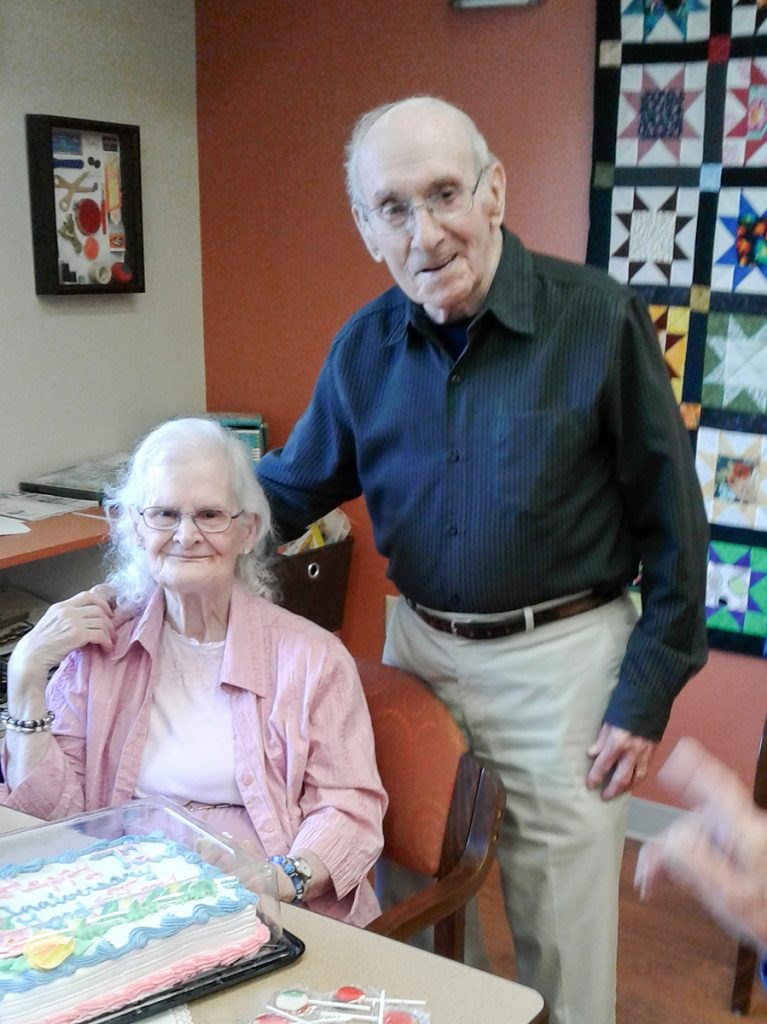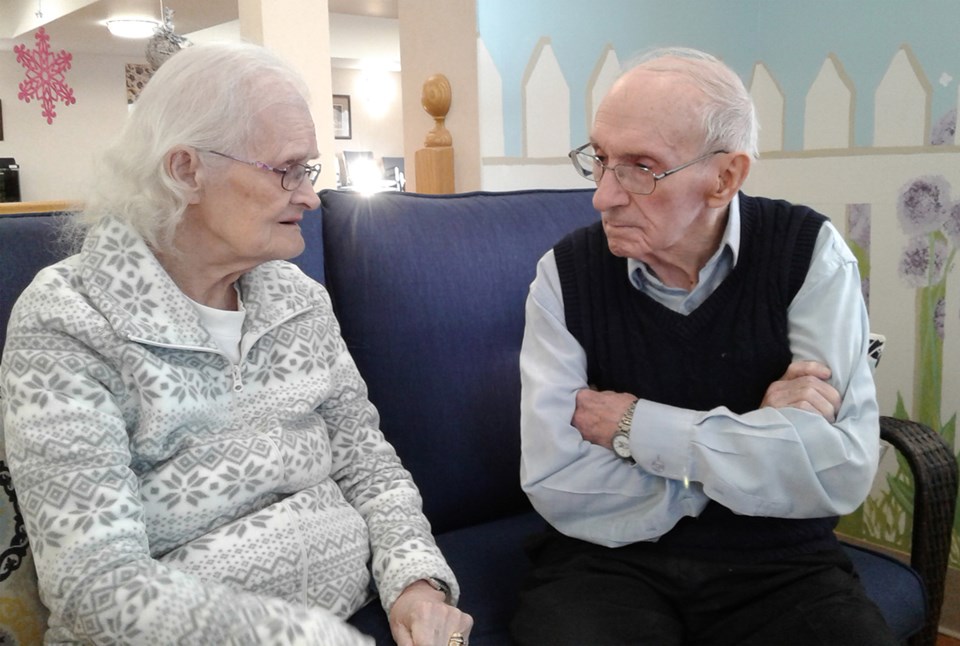Cathy Dobson
Toni Conroy, 93, keeps a wedding photo proudly displayed in her room, a fond reminder of her husband.
Though she and Gordon Conroy have been married 73 years, bureaucracy and provincial rules have prevented the Sarnia couple from living together for the past 15 months.
And now, with Sarnia’s Twin Lakes Terrace Long Term Care Community in COVID-19 lockdown, they can’t even see each other, said daughter Diane Herron.
“The bottom line is that my dad is almost 95 and needs to be with his wife,” she said.
“They miss one another incredibly. They’ve been together for so long. It’s so unfair that they are being kept apart.”
Herron blames the Erie St. Clair Local Health Integration Network (LHIN), which co-ordinates long-term care placements.
The Conroys lived in their own home, and in June 2018 their health took a turn. Both were assessed by the LHIN for long-term care, and both qualified based on cognitive tests.
“They signed all the papers to be accepted for long-term care placement,” said Herron. “I was there, and I know my father didn’t hesitate because he understood they’d be able to live together.
“They were told that (a provincial policy called) spousal reunification meant that would take top priority.”
Toni was hospitalized in January 2019 and then admitted into nursing care at Twin Lakes Terrace. Two weeks later, her husband fell ill. But when Gordon was released from hospital he was assigned a room in Twin Lakes retirement home, an adjacent but different facility.
“We understood that eventually they would be in the same room in long-term care,” said Herron.
But it never happened.
Gordon was reassessed and told he no longer qualified for long-term care, despite his advanced years.
“They told me his condition improved and he couldn’t move in with Mom,” said Herron. “I went ballistic.”
Prior to the pandemic, Gordon, the healthier of the two, was able to visit his wife’s room daily. But with the quarantine in place even that’s no longer possible.
Herron said her mother has “a shrine” of photos and dried flowers to her father, and she asks constantly about Gordon, who takes anxiety medication.
“They have a wonderful relationship,” she said.
Though attempts have been made for them to talk by phone the calls are difficult to co-ordinate.
For the past 15 months Gordon Conroy has paid $5,000 per month for private rooms for himself and his wife. They should be sharing a room, or at least on the same floor, Herron said.
“But they still can’t be together.”
She has appealed repeatedly to the LHIN without success. When her father was reassessed recently, it was done over the phone with the questions directed to Twin Lakes’ employees, Herron said.
“(The assessor) didn’t even speak to my father, and just said he still doesn’t qualify.”
The Journal contacted the Erie/St. Clair LHIN to ask why Ontario’s spousal reunification policy hasn’t worked for the Conroys.
“It sounds like a very unfortunate situation,” said LHIN spokesperson Shannon Sasseville. “I’ll get back to you.”
Sasseville later sent an email saying the LHIN can’t comment on a specific case, and any questions about spousal reunification rules should be directed to the provincial government.
Sarnia-Lambton MPP Bob Bailey has been asked to help.
“These aren’t the first people who have talked to me about their parents or grandparents wanting to live together in a home,” Bailey told The Journal. “I’d like to see them all reunited.
“I certainly understand the issue, and it’s a tough one. If my parents were alive I’d want it for them.”
Provincial legislation requires homes to designate a “specified number of long stay program beds for reunification priority.” But both spouses must be eligible for long-term care and Gordon no longer qualifies, according to the LHIN.
Ontario NDP MPP Catherine Fife has introduced Bill 153, the Long Term Care Homes (Till Death Do Us Part) Act. It aims to give residents the right not to be separated from spouses, even if their care needs are different.
Bill 153 was in line for committee review before third and final reading, but it’s unclear what will happen to it now with Queen’s Park focused on the pandemic.
Herron just hopes something can be done, and soon.
“I wonder, with COVID-19, if my parents are going to see each other again,” she said.

